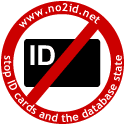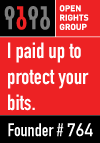We have never lived in a time when so much information is available to the public. We are surrounded by newspapers, radio, TV, internet, books and magazines, all telling us what is going on and what it all means, but is it believable and which do you believe? We are expected to make up our own minds, that is the principle of democracy, but is that possible when there is no apparent objectivity?
In a typical news story you get two or more sides arguing it out. On the defensive is often the government, particularly at the moment with Mr. Brown’s remarkable run of bad luck. On the attack, not surprisingly, are their political opponents out to score points, discredit the incumbents and sway public opinion when it comes to an election. You might think that the press was impartial but, disregarding their political leanings, their primary objective is to sell newspapers and increase ratings and the more sensational they can make a story the longer it will keep running. I was glad to note when my children were in school that they were taught to look at historical documents and consider possible bias, whether it is in letters, news sheets and even public records.
Whilst searching for some information I came across another aspect of the debate—silence. This is seen quite often in public scandals, whether to keep quiet in the hope that the critics will just go away or because the people who do know something are bound by official secrecy. Sometimes it is to save expense in dismissing frivolous accusations, or to give them more publicity than they deserve. In others it is thought that to by saying anything, they would incriminate themselves. The silence of the news media is much more mundane; if they think that the public are not interested or it would put them out on a limb then they won’t report it as it won’t sell. Another unexpected source of silence is apathy, the thought that no one is interested and web sites allowed to rot and die.
The public is not well served by silence. There are some things so big and important that the world needs to know the truth in an unambiguous fashion. The 11 Sept 2001 attack in America is one of them. Even the most cursory search of the internet reveals that there are countless conspiracy theories around, from the extreme nutcases to campaigns headed by quite eminent and apparently sane people. Counter to this there is very little. Excellent analyses are hidden on schools sites and popular science magazines. Perhaps it is all hot air but it creates a slant which is bound to attract attention and undermine the policies that stem from the incident so, I believe, the authorities are foolish to ignore it.






 Webmaster
Webmaster